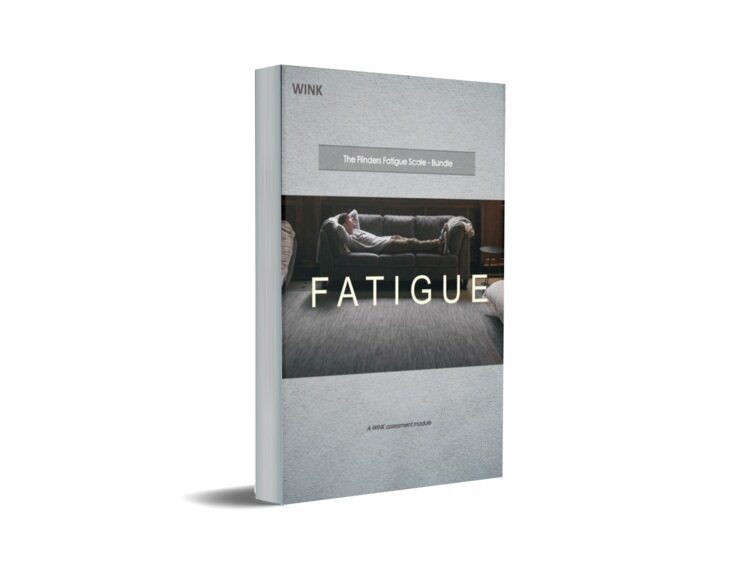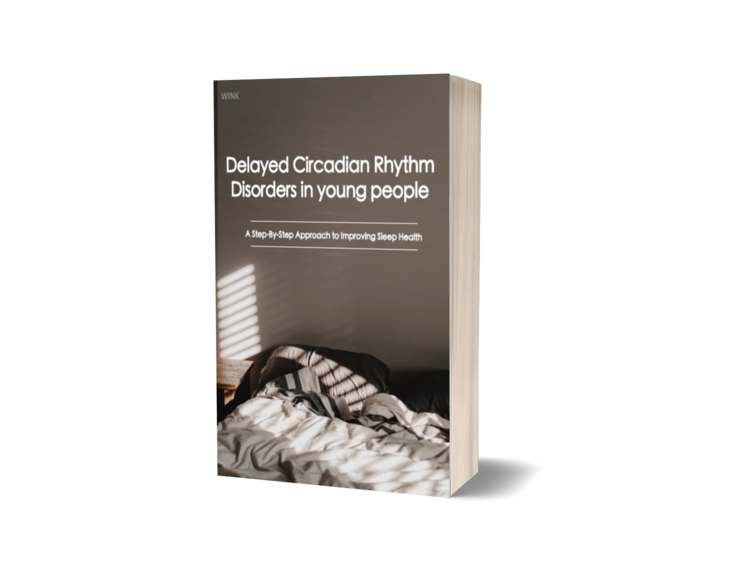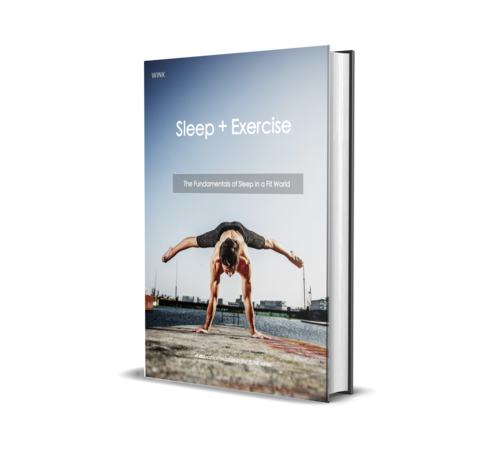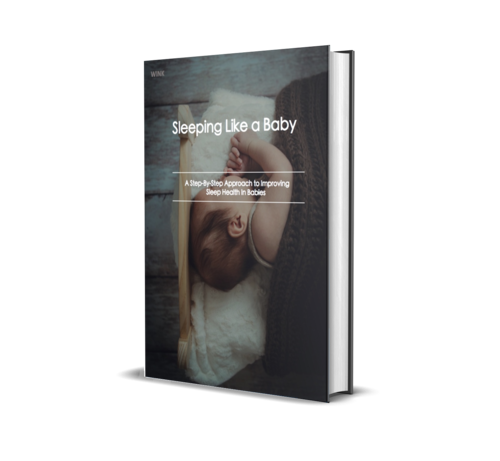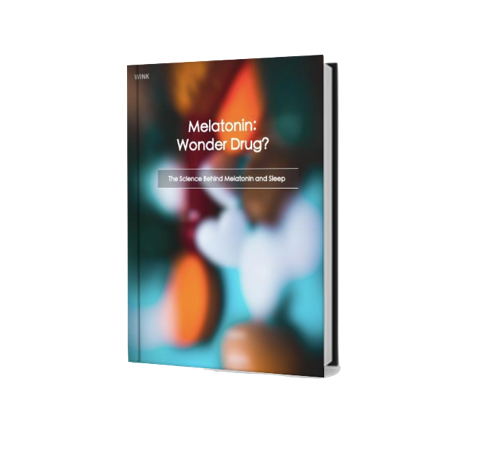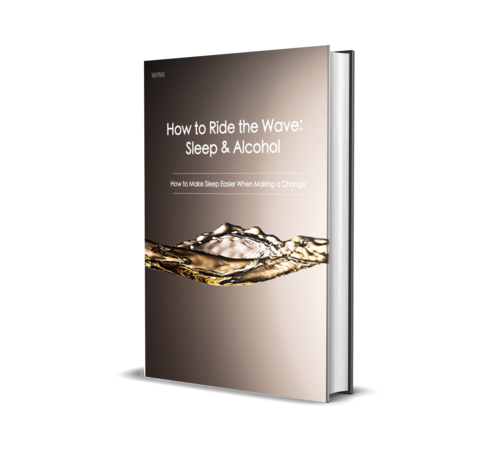#45 - Reacting to Stress (When Trying to Fall Asleep)
Like yourself, this week was a juggling act whilst riding a rollercoaster:
It was great to see my 3 Honours students submit their research theses after a challenging year (I’m sure we’ll tell you more about those studies in future)
We’re in a transition phase where we now examine 9,000 word Honours theses + we need to read a couple of hundred applications for people who wish to begin training as a psychologist in 2021.
I got to present a webinar on our research looking at the link between screens and sleep to 40+ South Korean students (gotta love technology)
And I’ve had to close my books for seeing new clients because I’m maxed out - just to name a few.
But it was one thing a client said that stood out this week.
His goal is to make the transition from going to bed to falling asleep better.
He’s actually done a lot of great work in this area. But the one thing left to work on is dampening the rumination that occurs when trying to fall asleep.
You know, thinking about …
… what happened today that you didn’t like, or even something that happened last week or last year (to learn more, read our previous blog here).
When this happens to him, he reacts a lot to it - and goes from being relaxed to wide awake.
And that’s exactly what happened to me in the past week.
Yes, that’s correct. Some of us sleep experts might not sleep well (and not all of us will admit it). The key difference is we don’t worry about it. In fact, I learned something from it.
For me, I didn’t react and become alert to a single thought or concern.
Instead, there was a ‘stacking’ of numerous thoughts. And the sheer volume of ‘everything I have to do.
Each one did not concern me - but the pile of thoughts eventually got so big, it was clear that I was wide awake and would have trouble getting back to sleep.
The Threshold
Imagine a book shelf that extends to your ceiling, and on the very top shelf is a book titled “Wide Awake AF!”
That book is so high, that you’d need a single tall ladder to reach it.
Well, that really tall ladder is what my client has. His large ‘reaction to stress’ means he’s able to climb right out of relaxing place - and into the realm of wide awake in a single bound.
For me, I never bought a tall ladder. I got a whole bunch of stackable steps (10 for the price of 1).
And now it’s about time i got to the point …
Experiencing insomnia means the addition of:
Pre-disposing factors (ie, our reactions to stress)
Precipitating factors (eg, a stressful event)
Perpetuating factors (eg, our own thoughts and behaviours)
My client has developed a big Pre-disposing factor named ‘stress reactivity’. Compared to me, he is closer to reaching the threshold of insomnia than I am.
If we experienced the same stressful event, it means he is more likely to experience insomnia.
But the other night, I had a big Perpetuating factor named "‘catastrophic worry”. That stacking of ‘what to dos’ pushed me above the threshold and I had a night of insomnia.
When we do sleep therapy, we mainly work on the Perpetuating factors (ie, changing people’s sleep behaviours, and helping them strike a better balance between unhelpful and helpful thinking).
This might explain why I did not necessarily experience insomnia since that bad night’s sleep. I problem solved my way out of experiencing that catastrophic worry.
Yet, dealing with stress reactions can take more time.
It means practicing to bring one’s general levels of stress down.
To use an analogy, when people attempt to lose weight, certain parts of their body will lose weight first, and then there will be some final areas that stubbornly take a bit longer to change.
Importantly, we can change aspects of our physiology.
It takes time. It takes practice. It takes commitment.
And sometimes it takes a lifestyle change.
The beautiful thing is that it is possible.
If you wish to read more about the role of stress and insomnia (and even links with perfectionism), we’ve published a new study this week that is free to download direct from the publisher for the next few weeks *
So What Can We Do About It?
We really need to identify areas of our lives that create stress for us.
Then we need to rank these - as some of our stress reactions will be easier to change than others.
We then need to research effective ways to deal with that stress.
I’m not talking researching via second-hand information - that is, reading a social media post (unless it is from someone who is a primary source of information on the topic - an expert). I cannot stress enough that learning how to interpret science is an important skill and it’s best to start with reading scientific review articles that can be searched through Google Scholar. And yes - scientists need to do a better job to make our science more translatable to the public.
Beginning with scientifically-backed low-intensity techniques (ie, simple to learn techniques that are short (eg, 5-10 minutes)) can be a great start. Some examples in the insomnia field are performing daily gratitude or a body scan.
Whilst these low-intensity techniques are happening in the background, use high-intensity techniques. This means professional assistance. There can be a few things you can do to find the right person:
Are they a specialist (eg, if the issue is insomnia, does the health professional only work on sleep, or are they someone who deals with a lot of issues (ie, they’re a generalist).
What is their estimated success rate? Ask this of them (ie, get their admin to pass on this question). If you don’t get an answer, then move on. To me, this might be an indicator that they do not evaluate their own practice.
Do they publish research? This one isn’t essential, but it can mean you’ve found someone who can do that extra bit more to help you.
The low-intensity and high-intensity techniques usually address the Perpetuating factors - our behaviours and thoughts. This is a starting point in the overall scheme of things.
But it is the ongoing commitment and practice with these science-backed techniques that can eventually dampen those irritating Pre-disposing factors.
Think about what 5-10 min technique you can practice for the next 7 days. Challenge yourself to a mini-experiment. Set reminders or alarms on your phone.
Remember that we need to stand before we can walk. And we need to walk before we can run.
Prof Mike Gradisar
-
February 2026
- Feb 16, 2026 #170 - Top 3 Myths About Melatonin
- January 2026
- October 2025
- September 2025
-
March 2025
- Mar 9, 2025 #166 - Sourcing Melatonin
- February 2025
- January 2025
-
December 2024
- Dec 8, 2024 #160 - Harvard vs Flinders
- Dec 1, 2024 #159 - (Sleep) Science vs Opinions
- July 2024
-
June 2024
- Jun 30, 2024 #157 - Home is where the Sleep is
- Jun 2, 2024 #156 - Everything You Need to Know about Tech and Sleep - Part 1
-
February 2024
- Feb 25, 2024 #155 - Behind the Mike - Matt Walker Part 2
- Feb 18, 2024 #154 - Behind the Mike - Matthew Walker - Part 1
- Feb 11, 2024 #153 - Celebrity Sleep
- January 2024
-
November 2023
- Nov 21, 2023 #150 - Ask Me Anything (About Sleep)
- Nov 12, 2023 #149 - Are Mums with Babies a Driving Hazard?
- October 2023
-
July 2023
- Jul 23, 2023 #147 - Melatonin: The Best Antioxidant In The World?
- Jul 10, 2023 #146 - Three 'Swedes' Walk Into An Airplane ...
-
June 2023
- Jun 18, 2023 #145 - Hair Cortisol & Baby Sleep
- Jun 11, 2023 #144 - Take a chance! Take a chance! Take a chance!
- May 2023
-
February 2023
- Feb 26, 2023 #142 - Big Sleep Week for Little Ones
- Feb 19, 2023 #141 - The Best of 2022
- Feb 12, 2023 #140 - The Lived Experience of Sleep Problems
- January 2023
- December 2022
-
November 2022
- Nov 28, 2022 #137 - Sleep Comfort is Cool
-
October 2022
- Oct 23, 2022 #136 - Is HRV the New Sleep Fad?
- Oct 3, 2022 #135 - Magnesium vs Melatonin? Which One Is Better For Sleep?
-
September 2022
- Sep 25, 2022 #134 - Chrononutrition and Yo-Yo-ing
- Sep 18, 2022 #133 - Overcoming Jetlag: Be Naughty
-
August 2022
- Aug 28, 2022 #131 - Helping Others: One 'Sleep' Does Not Fit All?
- Aug 14, 2022 #130 - Do Carbohydrates Affect Your Sleep?
- Aug 6, 2022 #129 - More Than 20 Questions About Melatonin
-
July 2022
- Jul 4, 2022 #128 - Do Metronomes Help You Fall Asleep?
-
June 2022
- Jun 27, 2022 #127 - Using Binaural Beats for Sleep
- Jun 19, 2022 #126 - What is Orthosomnia?
- Jun 12, 2022 #125 - Motivational Interviewing and CBT for insomnia
-
May 2022
- May 25, 2022 #124 - What is Negative Social Jetlag?
- May 15, 2022 #123 - Jetlag, ADHD and the Kitchen Sink
- May 8, 2022 #122 - Great Tits and Sleep
- May 1, 2022 #121 - Wi-Fi Off, Devices Out: Parents and their Teen's Sleep
-
April 2022
- Apr 22, 2022 #120 - Welcome to Sleep Cycle!
- Apr 17, 2022 #119 - What Is This Reverse First Night Effect?
- Apr 10, 2022 #118 - Improving Sleep With Science: How To - Part 3
- Apr 3, 2022 #117 - Improving Sleep With Science: It Takes More Than One Shot - Part 2
- March 2022
-
February 2022
- Feb 28, 2022 #113 - Baby Sleep Science
- Feb 21, 2022 #112 - The Rise of The Baby Sleep Apps
- Feb 15, 2022 #111 - Once Upon A Time, There Was A Little Bug That Changed Babies' Sleep ...
- Feb 8, 2022 #110 - Attachment and Baby Sleep
-
January 2022
- Jan 31, 2022 #109 - Do Blue-Blocking Glasses Work?
- Jan 23, 2022 #108 - Popularity and Sleep: Where Do You Stand?
- Jan 10, 2022 #107 - Your Top 10 Blogs of 2021
- December 2021
-
November 2021
- Nov 28, 2021 #102 - Magnesium For Sleep: Fact or Fiction?
- Nov 21, 2021 #101 - Teen Sleep 101: Prevention and Intervention
- Nov 14, 2021 #100 - 100 Sleep Tips (In Alphabetical Order)
- Nov 8, 2021 #99 - Which Sleep Clients Benefit The Most?
-
October 2021
- Oct 31, 2021 #98 - Counting Sheep To Sleep
- Oct 24, 2021 #97 - 3 Hours Before Bed - Rule Of Thumb vs Big Data
- Oct 17, 2021 #96 - Sleep and Eating Disorders
- Oct 10, 2021 #95 - Behavioural Experiments for Insomnia
- Oct 4, 2021 #94 - How To Write A (Sleep) Blog
-
September 2021
- Sep 26, 2021 #93 - Should You Begin A (Sleep) Blog?
- Sep 20, 2021 #92 - Does Environmental Light At Night (LAN) Affect Your Sleep?
- Sep 12, 2021 #91 - Waiting For Your Baby To Sleep
- Sep 4, 2021 #90 - Treating Teen Sleep: Lesson 3
-
August 2021
- Aug 28, 2021 #89 - Treating Teen Sleep: Lesson 2
- Aug 22, 2021 #88 - Treating Teen Sleep: Lesson 1
- Aug 15, 2021 #87 - Insomniacs Are Not Fat
- Aug 8, 2021 #86 - Beware Sleeping-In ... If You're A Niteowl
- Aug 1, 2021 #85 - You Can Bring Your TV Into The Bed(room)
-
July 2021
- Jul 25, 2021 #84 - Say It Ain't So
- Jul 18, 2021 #83 - Pulling The Blankets Over Your Eyes
- Jul 4, 2021 #82 - Sleeping With The Enemy: Is That Phone Next To Your Bed Harming Your Sleep?
-
June 2021
- Jun 27, 2021 #81 - The New Yorker VS Gabor Maté
- Jun 20, 2021 #80 - Can't Sleep? Have You Tried A Weighted Blanket?
- Jun 14, 2021 #79 - Skills Not Pills: The Limits of Sleeping Pills
- Jun 6, 2021 #78 - Sex. Sleep. Repeat.
-
May 2021
- May 30, 2021 #77 - How Can Shinrin-Yoku (Forest Bathing) Help You Sleep?
- May 23, 2021 #76 - Laughing Yourself to Sleep
- May 16, 2021 #75 - Digital CBT for Insomnia: Will We Be Replaced By Robots?
- May 9, 2021 #74 - What Is A Sleep Coach?
- May 2, 2021 #73 - Sleep in Motion
- April 2021
- March 2021
-
February 2021
- Feb 28, 2021 #64 - Trauma and Sleep
- Feb 21, 2021 #63 - Is It OK to Exercise Before Bed?
- Feb 14, 2021 #62 - Stress, Sleep & Cortisol
- Feb 8, 2021 #61 - From Clinic to Classroom: Sleep Education that Works!
-
January 2021
- Jan 29, 2021 #60 - Should You Sleep With Your Pet?
- Jan 22, 2021 #59 - How Do I Get My Preschooler to Sleep?
- Jan 15, 2021 #58 - What is Intensive Sleep Retraining?
- Jan 10, 2021 #57 - Sleep Training is Not Harmful
- Jan 1, 2021 #56 - The Top 10 Blogs of 2020
-
December 2020
- Dec 26, 2020 #55 - WINK Membership
- Dec 21, 2020 #54 - How Will You Sleep This Christmas?
- Dec 11, 2020 #53 - The Sleep Tech Boom !
- Dec 4, 2020 #52 - How to Stop Videogaming
-
November 2020
- Nov 29, 2020 #51 - Ticking to 25 hrs a Day
- Nov 20, 2020 #50 - It Works! Helping Babies Sleep Better during COVID
- Nov 14, 2020 #49 - Are National Geographic's Sleep Tips Credible? - Part 1
- Nov 6, 2020 #48 - This is Why Trump shouldn't use Tech before Bed
-
October 2020
- Oct 30, 2020 #47 - How To Get 2 Hours More Sleep
- Oct 25, 2020 #46 - THE Guide to Helping Teens Sleep
- Oct 16, 2020 #45 - Reacting to Stress (When Trying to Fall Asleep)
- Oct 9, 2020 #44 - Alcohol & Your Sleep IQ
- Oct 2, 2020 #43 - Insomnia + Sleep Apnea: A Marriage, Not a Divorce
-
September 2020
- Sep 25, 2020 #42 - Violent Videogames and Sleep
- Sep 18, 2020 #41 - Which Melatonin Is Best For Your Sleep?
- Sep 11, 2020 #40 - How to Power Nap
- Sep 4, 2020 #39 - One Reason You Might Wake In The Middle Of The Night
-
August 2020
- Aug 29, 2020 #38 - Sex In The Bed
- Aug 22, 2020 #37 - Just Ask Us ...
- Aug 14, 2020 #36 - Howz You (Post-Lunch Dip) Going?
- Aug 7, 2020 #35 - Fatigue ... FFS !
-
July 2020
- Jul 31, 2020 #34 - The Great Divide of Baby Sleep
- Jul 24, 2020 #33 - Vices and Devices
- Jul 17, 2020 #32 - The National Sleep Foundation: Behind the Scenes
- Jul 10, 2020 #31 - Waking Up to Panic Attacks (...and what to do about these buggers!)
- Jul 3, 2020 #30 - Sleep & IQ - It's Groundhog Day (Not).
-
June 2020
- Jun 25, 2020 #29 - Tick Tock - is it "Depression O'Clock"?
- Jun 19, 2020 #28 - Do You Think About "Everything and Nothing"?
- Jun 15, 2020 #27 - How Do I Get My Child To Stay In Bed?
- Jun 12, 2020 #26 - Is It Safe To Drive During Insomnia Treatment?
- Jun 5, 2020 #25 - Do Seasons Affect Sleep?
-
May 2020
- May 29, 2020 #24 - What's the Worst Night of the Week?
- May 1, 2020 #23 - Kids aren't born with a PDF manual. But here's a start...
-
April 2020
- Apr 24, 2020 #22 - Why Sleep is like the Stock Market
- Apr 19, 2020 #21 - COVID = Insomnia ?
- Apr 10, 2020 #20 - Is It OK to Sleep-In ?
- Apr 3, 2020 #19 - Are You Your Child's Sleep Scientist?
- March 2020
-
February 2020
- Feb 15, 2020 #14 - When in Sweden...
- Feb 8, 2020 #13 - ARE Parents the Sleeping Pill of School Kids?
-
January 2020
- Jan 31, 2020 #12 - I Need A Sleep Expert: Which One Do I Choose?
- Jan 10, 2020 #11 - The Harm Clockwatching Does To Our Sleep
- Jan 8, 2020 #10 - Is It OK For My Baby To Fall Asleep To Music?
- Jan 8, 2020 #9 - Treating One Of The Most Common Teenage Sleep Problems
- Jan 8, 2020 #8 - What Can I Do If My Child Is Afraid Of The Dark?
-
December 2019
- Dec 30, 2019 #7 - A History of the LED Light Glasses
- Dec 28, 2019 #6 - Sleep, Drink & Eat: Time to Drop the Labels?
- Dec 27, 2019 #5 - Wearables & Nearables: Sleep is not what it is all Perceived to be
-
May 2019
- May 26, 2019 #4 - Solving Sleep Problems in School-Aged Children
- May 19, 2019 #3 - Does Your Baby Have a Sleep Problem?
- April 2019






